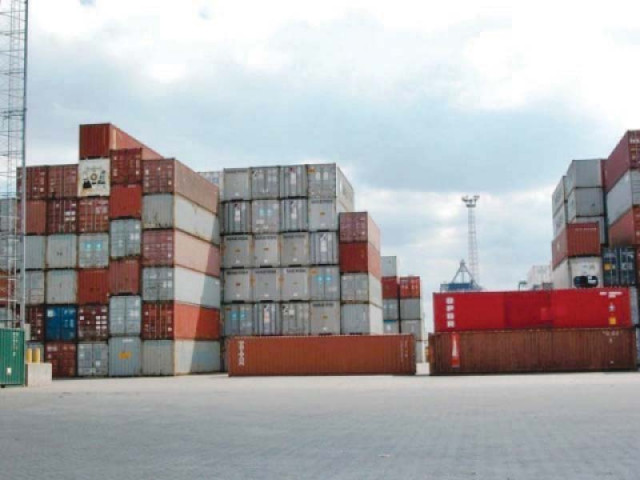SC temporarily allows collection of regulatory duty
Sets aside high court’s decision that stopped duty collection on over 356 goods

The relief comes at a time when tax authorities are struggling to achieve this year’s Rs4.013-trillion tax collection target. PHOTO: FILE
Headed by Chief Justice of Pakistan Mian Saqib Nisar, the three-judge bench of the apex court provided interim relief to the government against a decision of the Sindh High Court (SHC).
Last month, the SHC had struck down an amendment to the Customs Act which became the basis for imposition of the regulatory duty on more than 356 goods in order to curb growing imports.
Top court takes notice of newly-elected senators' dual nationality
On February 7, the provincial court declared the Statutory Regulatory Order (SRO) 1,035 of 2017 unconstitutional, which the FBR had issued in October 2017 in exercise of powers conferred by the amended Section 18(3) of the Customs Act. The SHC declared the amendment to the Customs Act “ultra vires and unconstitutional”.
However, the SHC suspended its judgement for 30 days in order to enable any aggrieved party to appeal against the verdict. On this basis, the FBR filed a Civil Petition for Leave to Appeal (CPLA) in the SC, requesting the court to grant it relief against the decision.
The SC allowed the FBR to collect the regulatory duty till the time it took a final decision, said an official of the FBR after the court proceedings. The FBR has estimated that it would collect Rs90 billion in revenues on account of the SRO 1,035 in the current fiscal year 2017-18 (FY18).
The relief comes at a time when tax authorities are struggling to achieve this year’s Rs4.013-trillion tax collection target. The regulatory duty on imported items remains an important tool for the FBR for increasing the collection of duties and sales tax at the import stage.
Total tax collection at the import stage, which is inclusive of regulatory duty, customs duty, withholding taxes and sales tax is estimated at roughly 45% of FBR’s total collection.
The SHC had made a Supreme Court’s judgement the basis for declaring the amendment to the Customs Act 1969 through the Finance Act 2017 unconstitutional.
In the August 2016 verdict, the Supreme Court had defined the federal government as the federal cabinet plus the prime minister and barred the premier or any minister from unilaterally taking decisions on fiscal matters.
In order to defeat the Supreme Court’s ruling, then finance minister Ishaq Dar had acquired special powers by inserting a similar clause in all the four fiscal laws. The clause stated that the board (FBR) with approval of the federal minister in charge may by notification make changes in the tax rates.
The SHC had upheld the principle of taxes and duties being imposed only by parliament. “Those functions of the federal government that relate to the exercise of legislative powers cannot be conferred at all, ie, cannot be regarded as part of the designated functions,” said the SHC judgement.
Further legal challenges
Although the SC’s interim relief would address the FBR’s fiscal concerns, the government will still have to address the legal issue that became the basis for declaring the SRO 1,035 illegal, according to legal experts.
Revenue staffers go on strike
Sources in the FBR said the government was considering deleting the special clause in all the four tax laws that empower the minister in charge to issue SROs without approval of the federal cabinet. They said if an emergency arose, the government could promulgate an ordinance to end the special powers.
However, since the SC has granted interim relief, the possibility is that the FBR will propose to delete these powers from the Customs Act, Sales Tax Act, Federal Excise Duty Act and Income Tax Ordinance when the FY19 budget is prepared.
At the time of inserting these powers into the fiscal laws, the Senate Standing Committee on Finance had shown its opposition to giving these powers to the finance minister. However, the government prevailed, thanks to its majority in the National Assembly.
Published in The Express Tribune, March 7th, 2018.
Like Business on Facebook, follow @TribuneBiz on Twitter to stay informed and join in the conversation.


















COMMENTS
Comments are moderated and generally will be posted if they are on-topic and not abusive.
For more information, please see our Comments FAQ